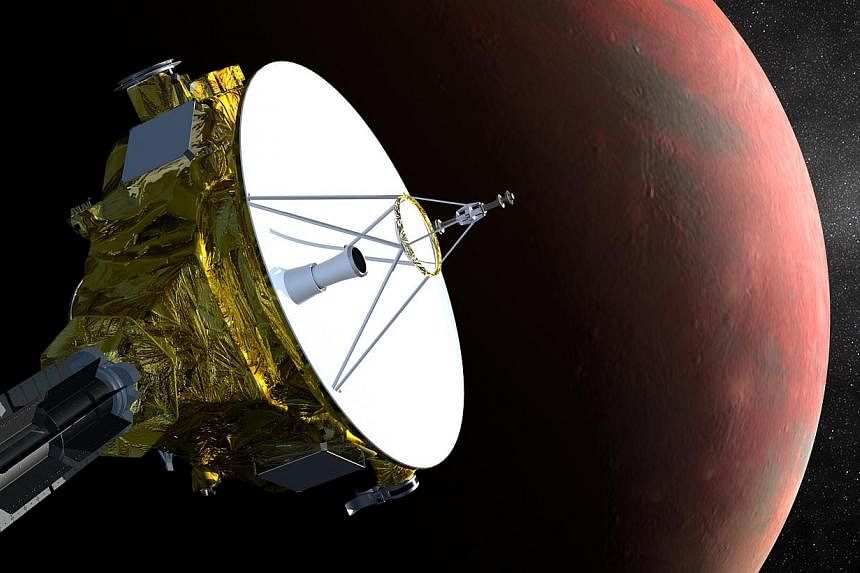CAPE CANAVERAL, Florida (REUTERS) - After nine years and a journey of 4.8 billion km, Nasa's New Horizons robotic probe will be woken from hibernation to begin its unprecedented mission: the study of the icy dwarf planet Pluto and its home, the Kuiper Belt.
A pre-set alarm clock is due to rouse New Horizons from its electronic slumber at 3pm EST on Saturday (4am on Sunday, Singapore time).
The scientific observation of Pluto, its entourage of moons and other bodies in the solar system's frozen backyard begins Jan 15, programme managers said.
Pluto lies in the Kuiper Belt, a region of icy mini-planets orbiting the sun beyond Neptune. It is the last unexplored region of the solar system.
"It's hard to underestimate the evolution that's taking place in our view of the architecture and content of our solar system as result of the discovery of the Kuiper Belt," lead researcher Alan Stern said.
Confirmation that New Horizons is out of hibernation should come at 9.30pm EST. The probe will make its closest approach to Pluto on July 14.
Since its discovery in 1930, Pluto has been a mystery, partly because of its comparatively small size.
Scientists struggled to explain why a planet with a radius of just 1,190km could come to exist beyond the giant worlds of Jupiter, Saturn, Uranus and Neptune.
"We wondered why Pluto was a misfit," Stern said.
In 1992, astronomers discovered that Pluto, located about 40 times farther away from the sun than Earth, was not alone in its diminutive size, prompting the International Astronomical Union to reconsider its definition of "planet".
In 2006, with New Horizons already on its way, Pluto was stripped of its title as the ninth planet in the solar system and became a dwarf planet, of which more than 1,000 have since been discovered in the Kuiper Belt.
With New Horizons approaching Pluto's doorstep, scientists are eager for their first close-up look at this unexplored domain.

